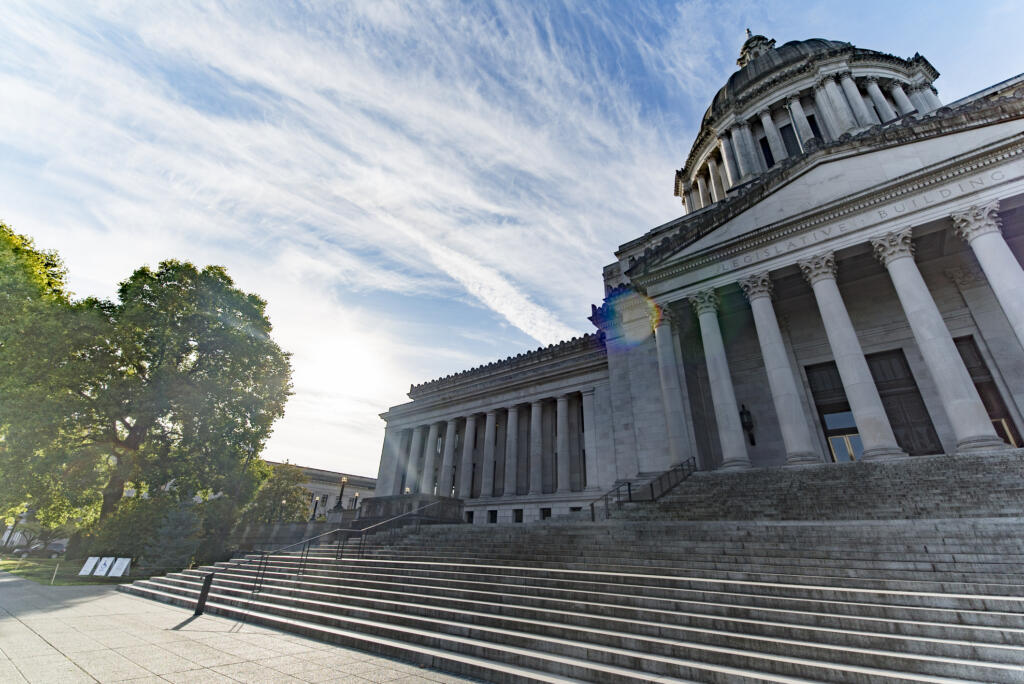OLYMPIA — The Washington House voted Tuesday to limit rent increases for current tenants statewide at 7 percent annually, which means the proposal is still alive even though it faces hurdles in the state Senate, where a version of the bill died last month.
The House debate on Tuesday night, before members passed it 54-43, retread the same underlying disagreement that has dogged the policy on its journey through the Statehouse.
Supporters urged action to prevent large rent increases and the resulting instability for renters, and opponents argued that the measure would not tackle the underlying driver of housing costs — the lack of housing in Washington — and worried it could be counterproductive in the ongoing effort to boost the state’s housing supply.
Rep. Nicole Macri, D-Seattle, said that median rents have outpaced median income for more than 20 years in Washington and many people in the state are burdened by rent costs.
“Having a stable place to live isn’t a luxury, it’s a necessity,” Macri said. “It’s something that we all need.”
But Rep. Leonard Christian, R-Spokane Valley, said that “fixing prices only makes the problem worse.”
He argued that the legislation wouldn’t fix property taxes, maintenance costs and utility costs for the property owner at a certain percentage.
“We’re only fixing the amount of money they can raise,” Christian said.
In addition to limiting annual rent increases for existing tenants to 7 percent, House Bill 2114 would also limit late fees to 1.5 percent of monthly rent and would exempt new construction for 10 years.
Although the proposal has drawn controversy, the debate was relatively short, spanning about an hour. Republicans had proposed a slew of amendments to the bill but withdrew most of them, except for one that would replace the bill with a study of whether restricting rent increases would be effective. That amendment was not adopted.
“The problem is this: When the bill hits the board, it’s gonna pass,” said Rep. Andrew Barkis, R-Olympia. “It’s a sad reality, but we’re not debating on the floor of the House.”
The vote took place on the last possible day for the policy to live this year, since a legislative deadline to pass bills out of the chamber hit Tuesday evening and because a Senate version of the bill died earlier this session.
Barkis said there was “no fixing this bill.”
“This is a one-sided policy from a majority pushing it through, consequences be damned, right?” Barkis said. “And it’s really unfortunate.”
Advocates for the proposal, though, cheered its passage in the House.
“Lawmakers have stated that providing relief to the 1 million plus renter households facing excessive rent increases was a top priority this session,” Michele Thomas, policy and advocacy director of the Washington Low Income Housing Alliance, said in a statement. “Now they have put action to their words.”
In anticipation of Tuesday night’s deadline, legislators in the House and Senate spent hours on the floor throughout the day; the night before, House business lasted into the wee hours.
In contrast to the debate in the House on Tuesday evening, the state Senate had a more anodyne measure to vote on before the deadline hit: a bill to officially designate “The Evergreen State” as the state nickname. It passed 47-2.
The Legislature has now given the first-chamber approval to many bills, spanning everything from raising a limit on special education funding to creating a retirement savings program for workers who don’t have access to one through their jobs.
The first chamber deadline is one of many hurdles a bill must clear before passing into law — a bill has to pass both chambers — but it’s a deadline that essentially cleaves the session in half: Attention now turns toward moving bills through the second chamber and to the state budget.
The legislative session is scheduled to end in early March.



